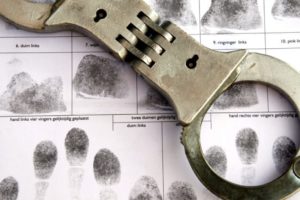A federal judge ordered an accused pimp to unlock his iPhone via Touch ID fingerprint scan in 2013, unsealed court documents reveal.
 As 9to5Mac reports, this is only the second known federal case in which a suspect has been ordered to unlock a device via fingerprint scan, an order that some warn could be unconstitutional, in violation of the Fifth Amendment protection against self-incrimination. It isn’t clear whether the accused, a Dallas resident accused of compelling underage girls to have sex with strangers, has complied with the order, or even whether a passcode was also needed to unlock his smartphone.
As 9to5Mac reports, this is only the second known federal case in which a suspect has been ordered to unlock a device via fingerprint scan, an order that some warn could be unconstitutional, in violation of the Fifth Amendment protection against self-incrimination. It isn’t clear whether the accused, a Dallas resident accused of compelling underage girls to have sex with strangers, has complied with the order, or even whether a passcode was also needed to unlock his smartphone.
The court cases point to a serious legal tension that has emerged with the rise of biometric authentication on mobile devices. Law and technology researcher Bryan Choi has pointed to a legal tradition in which courts have allowed police to collect bodily evidence, but have prevented legal authorities from compelling citizens to divulge knowledge, such as passcodes. The biometric password replacement fits awkwardly into this formulation.
Still, a solution of sorts is already emerging in the combination of passcodes and biometric authentication, with Apple recently having instituted a security mechanism for its mobile devices requiring that a passcode be entered if a device hasn’t been unlocked for the past 48 hours, or if the passcode hasn’t been used in six days and Touch ID hasn’t been used in eight hours. Such measures should serve to further protect the contents of mobile devices—and frustrate police.
Sources: Ars Technica, 9to5Mac
–
July 25, 2016 – by Alex Perala


Follow Us